Handheld gaming is about the only time I get the chance to work through my ever-growing library of games, whether it's on the Legion Go, Switch, or Switch 2, or even on my phone with a clamp-style controller. It's not the portability, although that helps, but most of them have some pause and resume function, so I can get a few minutes when I have time and get back to whatever needs doing.
I'll recommend handheld consoles, emulator-packing retro clones, and PC gaming handhelds to anyone who will listen, even now, but that doesn't mean you should instantly jump up and go purchase one. Temper that enthusiasm and keep it safe, because it's not the best time to get one, unless you have an impending travel arrangement and can't wait.
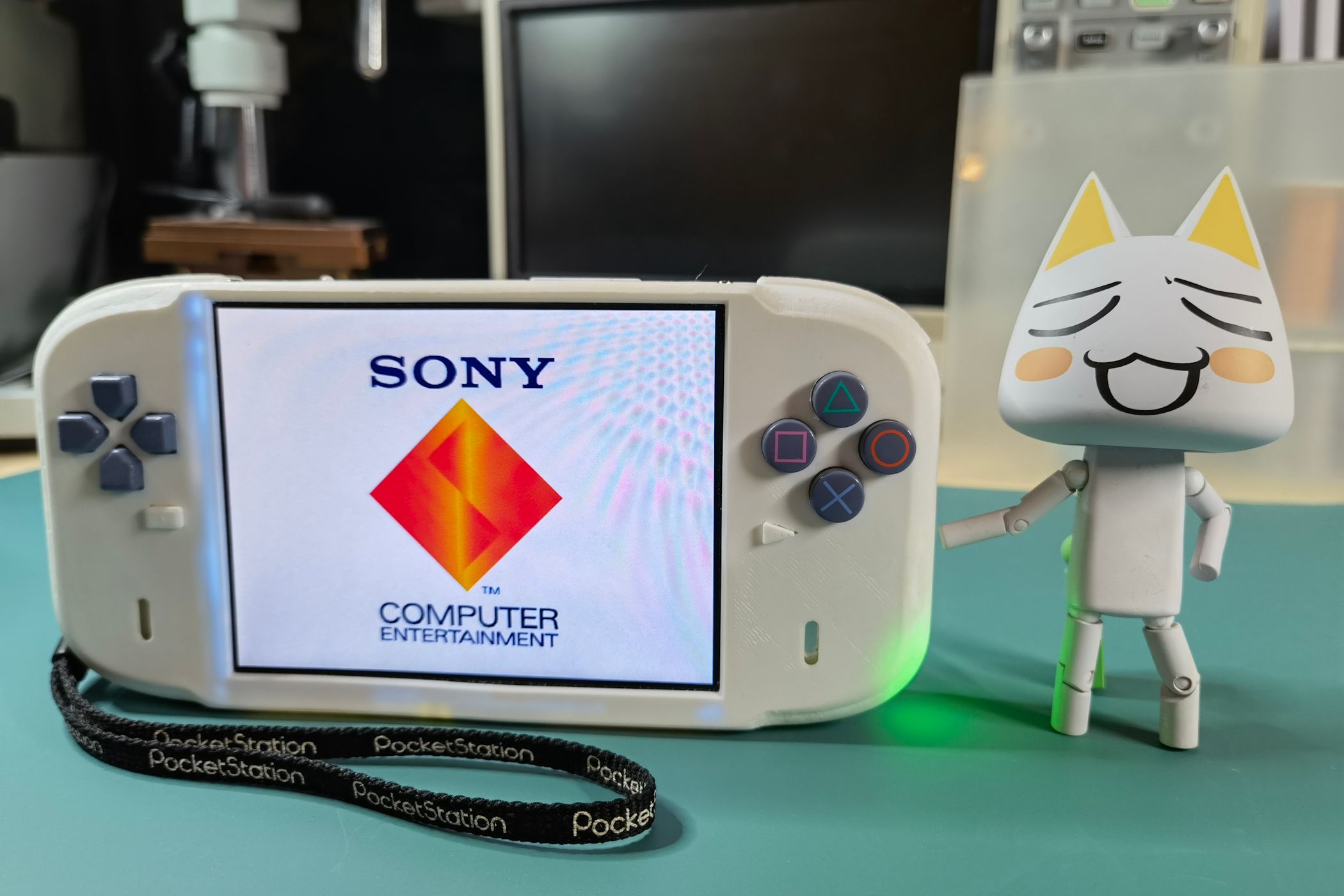
Related
5 people who made their own handheld gaming device
If you can't build your own, storebought is fine.
Even if you want to pick up a gaming handheld right now, in most countries you can't. The Nintendo Switch 2 is the best gaming handheld you can get for under $450, except, of course, you can't get one because they're out of stock everywhere. The original Nintendo Switch is still readily available, so if you don't already have the OLED version, that might be the move, but it's still expensive, and Nintendo rarely gives discounts on hardware.
The Nintendo Switch 2 is the best gaming handheld you can get for under $450, except, of course, you can't get one because they're out of stock everywhere.
The MSI Claw 8 AI+ might be the most powerful PC gaming handheld, except that it's also sold out and now costs $1,000, which is too much for anything other than a laptop. The ROG Ally X may still be available, but it's unsurprising at $900, considering more powerful devices are on the way (or even here). The glimmer of hope comes from Valve, because the Steam Deck and Steam Deck OLED are both available, if you live in the US, and at the usual MSRP, but the hardware inside wasn't particularly potent at launch, and now it's underpowered.
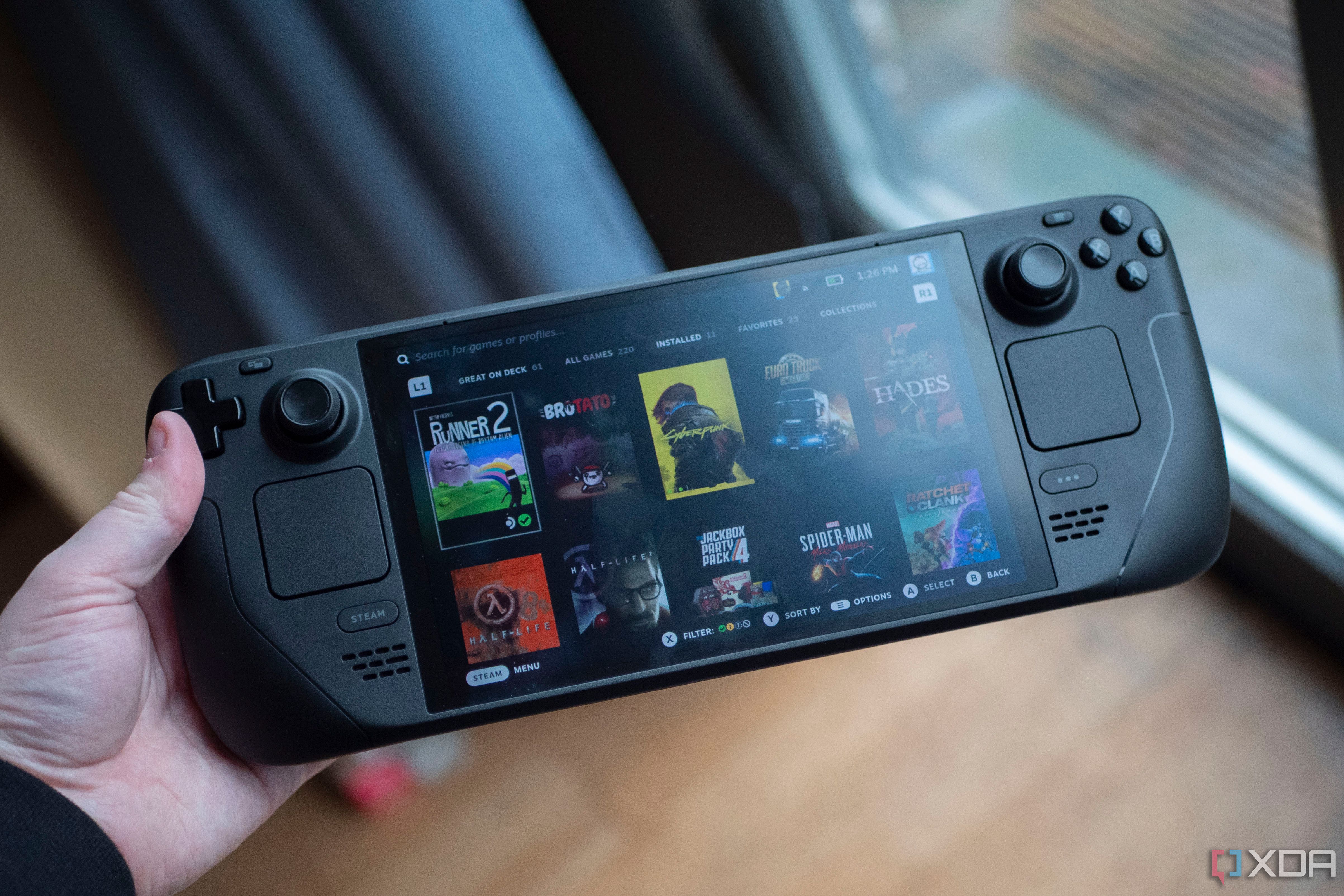
Related
Steam Deck OLED review: More than just a screen upgrade
The Steam Deck OLED dropped by surprise recently, and it's a fantastic handheld that's more than just a screen upgrade.
The Nintendo Switch 2 launched with 25 titles if you really stretch your definition of a Switch 2 game, with all but four being ports or remasters. It's not the only time Nintendo has launched a console with few games; the Wii relied on Wii Sports for the longest time, and the best Switch 1 games took a while to appear. The point is, Nintendo has yet to announce titles for many of its mainline franchises, and the ones that have been announced are a little ways off.
The exception is Donkey Kong Bananza, which arrives in July, but Metroid 4 is a "later in 2025" title, and Mario and Luigi are glued to their Karts right now. Kirby gets hungry later in the year, there's a Pokémon game coming and a Hyrule Warriors sequel, but many of these are spinoffs from the main storylines, and you don't need to pick them up straight away.
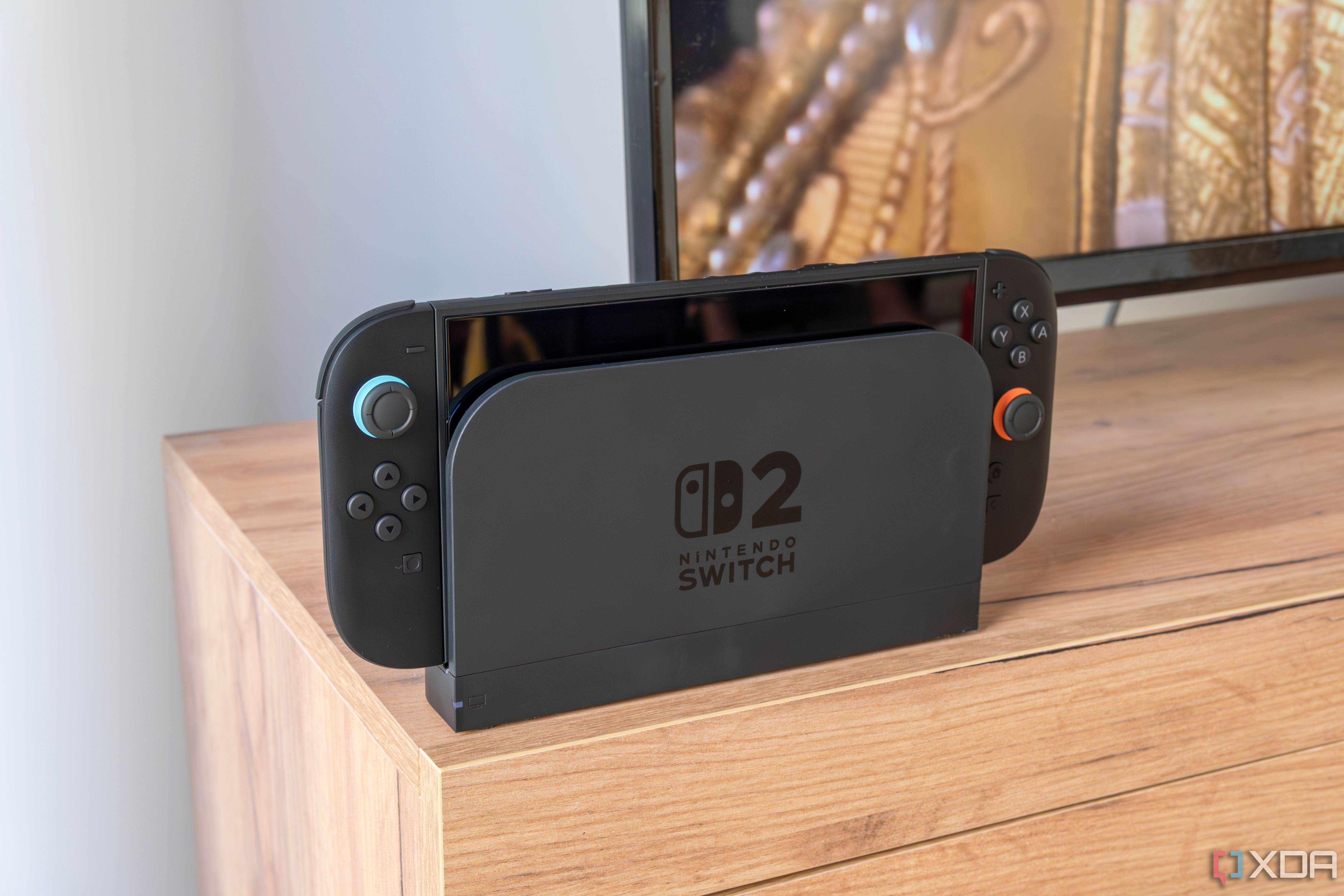
Related
Nintendo just won the console war without releasing any games
While Xbox and PlayStation were arguing, Nintendo did its own thing (as always).
The MSRP of gaming handhelds has been creeping up across the board. It's not a good situation for consumers when you look at the $400 Steam Deck LCD or $450 Nintendo Switch 2 and consider them "good value, all things considered," but here we are. Those, the MSI Claw 8 AI+, ROG Ally X, or Lenovo Legion Go S would be fine alternatives, but they were already a stretch at their launch MSRP, and they're all $100 more at the moment.
Those might be tied to tariffs, but the rest of the market doesn't look rosy either. Ayaneo, OneXplayer, GPD, and the rest of the crowdfunding darlings are all more expensive still, with some models touching $2000. That's five Steam Decks. I know which one I'd pick, and I've already got one, stuffed with the largest 2TB SSD it fits.
4:33
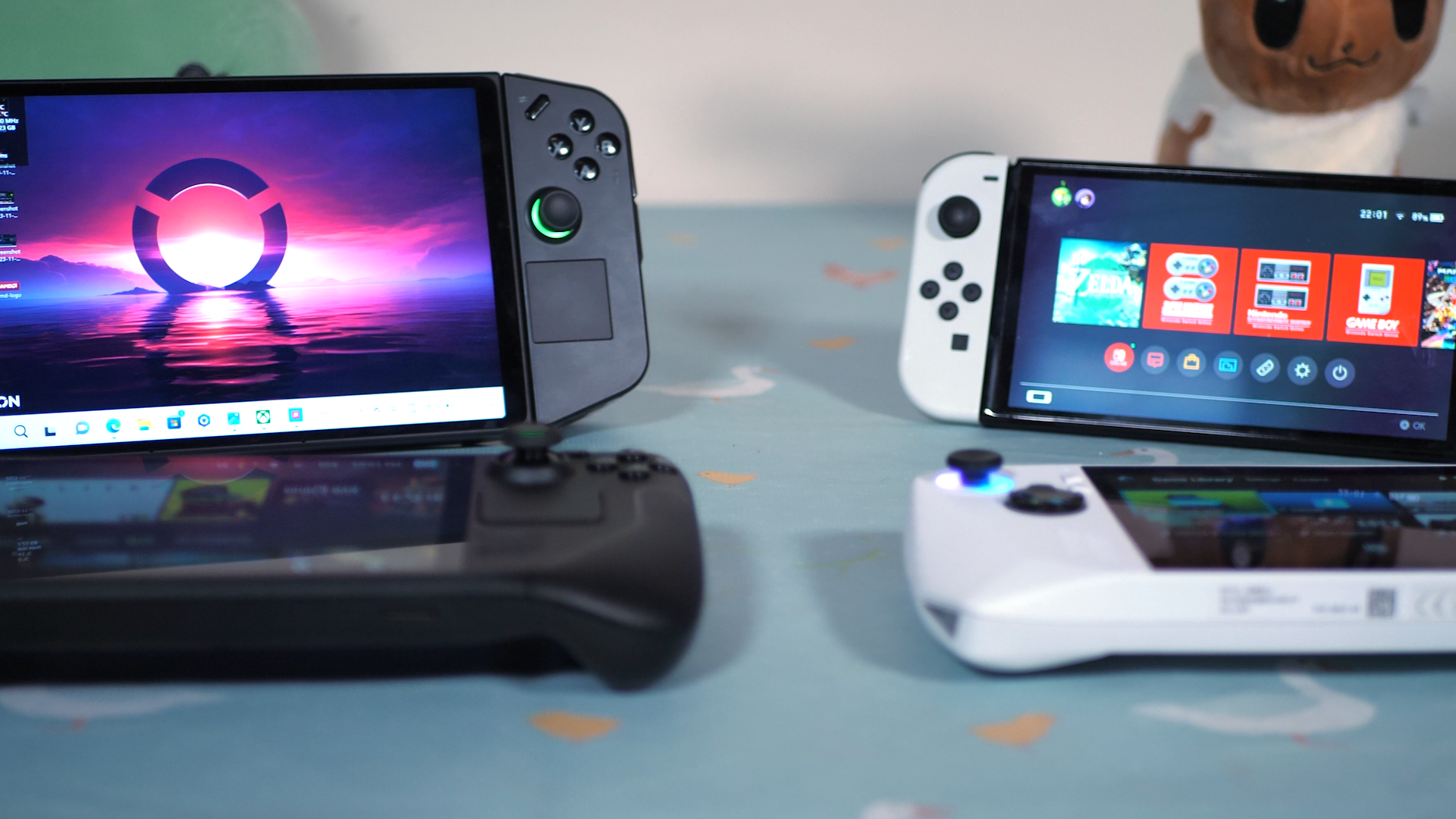
Related
Best Steam Deck alternatives in 2025
The Steam Deck is one of the best handheld gaming systems, but if you can't find one, or fancy something different, there are good alternatives
Pricing aside, there are other reasons to avoid the third-tier of gaming handhelds. These range from questionable design decisions, such as giant screens with removable controllers, battery charging issues, and compatibility problems with third-party accessories, to displays of dubious quality and reused Android parts hacked into Windows-based devices, among others.
The ones that run Windows have the same issues as the top-tier models, but without the large software team trying to make an overlay or carousel-style launcher that actually works well with Windows instead of giving you headaches. Some are better than others, but they're all half measures at best.
And then there's the thing rarely discussed during reviews: the after-sales support. If we encounter issues, marketing usually addresses them promptly, and we rarely see how the regular customers are treated. This is a significant issue when the company lacks a Western headquarters, and customer protection laws can only be enforced to a certain extent. All I'm saying here is use a credit card with good customer protection for chargebacks, because you might need it.
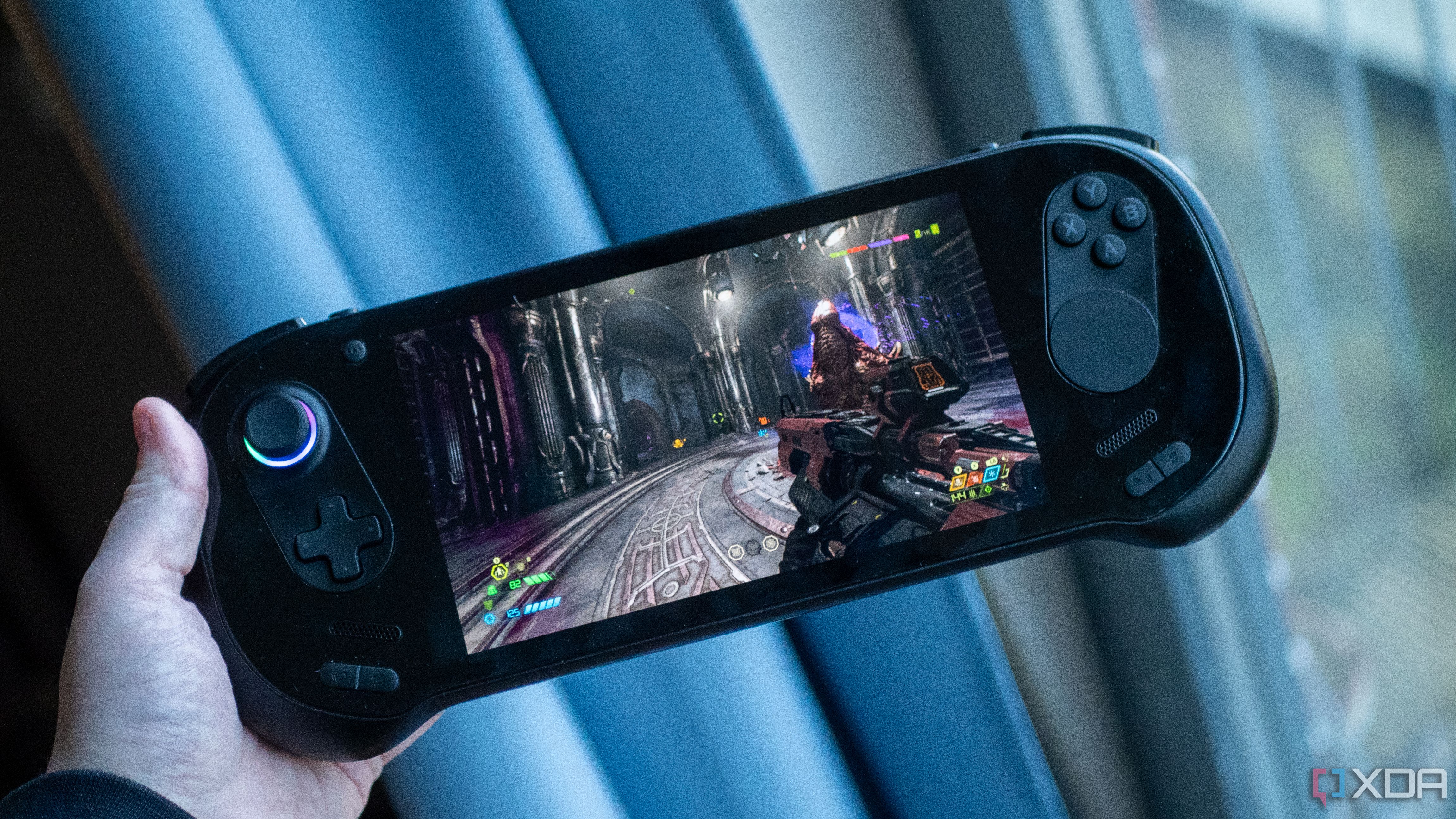
Related
The Ayaneo 3 is possibly the best gaming handheld on the market, but I still wouldn't buy one
The Ayaneo 3 is one of the best gaming handhelds on the market, possibly the best, but the pricing lets it down.
We often talk about what Microsoft needs to do for Windows to become a viable option on gaming handhelds, and it seems someone there has been listening. With the Xbox-branded Asus handheld on the way, the company has more at stake and needs to nail the user experience. Which it might, because SteamOS showed them the way, the Xbox basically runs Windows at its core, and you'll eventually be able to use the new Xbox UI everywhere.
The bad news? The Xbox-branded handheld isn't coming until the holiday period, and the ability for other Windows-based handhelds to use it will be at some far-off time after that. Even if gamers prefer SteamOS at that point, the Xbox name carries weight, and it'll be enough to entice people to pick up a handheld. There's no point until then though, because Windows sucks on smaller screens, especially when you have to use the virtual keyboard for everything.
SteamOS now runs on the Steam Deck and the Legion Go S natively, but it also works on plenty of other gaming handhelds. I've used it on the ROG Ally X, and other writers have on the ROG Ally or Legion Go, all to varying levels of success. The UI works with a controller because Valve put a ton of work into it, desktop mode is there if you want it but hidden otherwise, and you can do every task you need from the gaming UI.
| ROG Ally | Average FPS (SteamOS) | Average FPS (Windows) |
|---|---|---|
| Cyberpunk 2077 | 54 | 40 |
| The Last of Us Part I | 42 | 31 |
| Control | 35 | 27 |
| F1 2020 | 84 | 75 |
And those are only the handhelds that SteamOS supports right now. Performance is better with SteamOS, and so is battery life. Sleep and resume work properly, and you don't get accidentally kicked to the desktop when you use the wrong gesture on the touchscreen. And you're not limited to SteamOS, because the work Valve put into the Proton compatibility layer means all Linux distributions benefit. However, not every gaming handheld has Linux-compatible drivers for its components, but Valve is bringing SteamOS to more devices, so expect that to change.
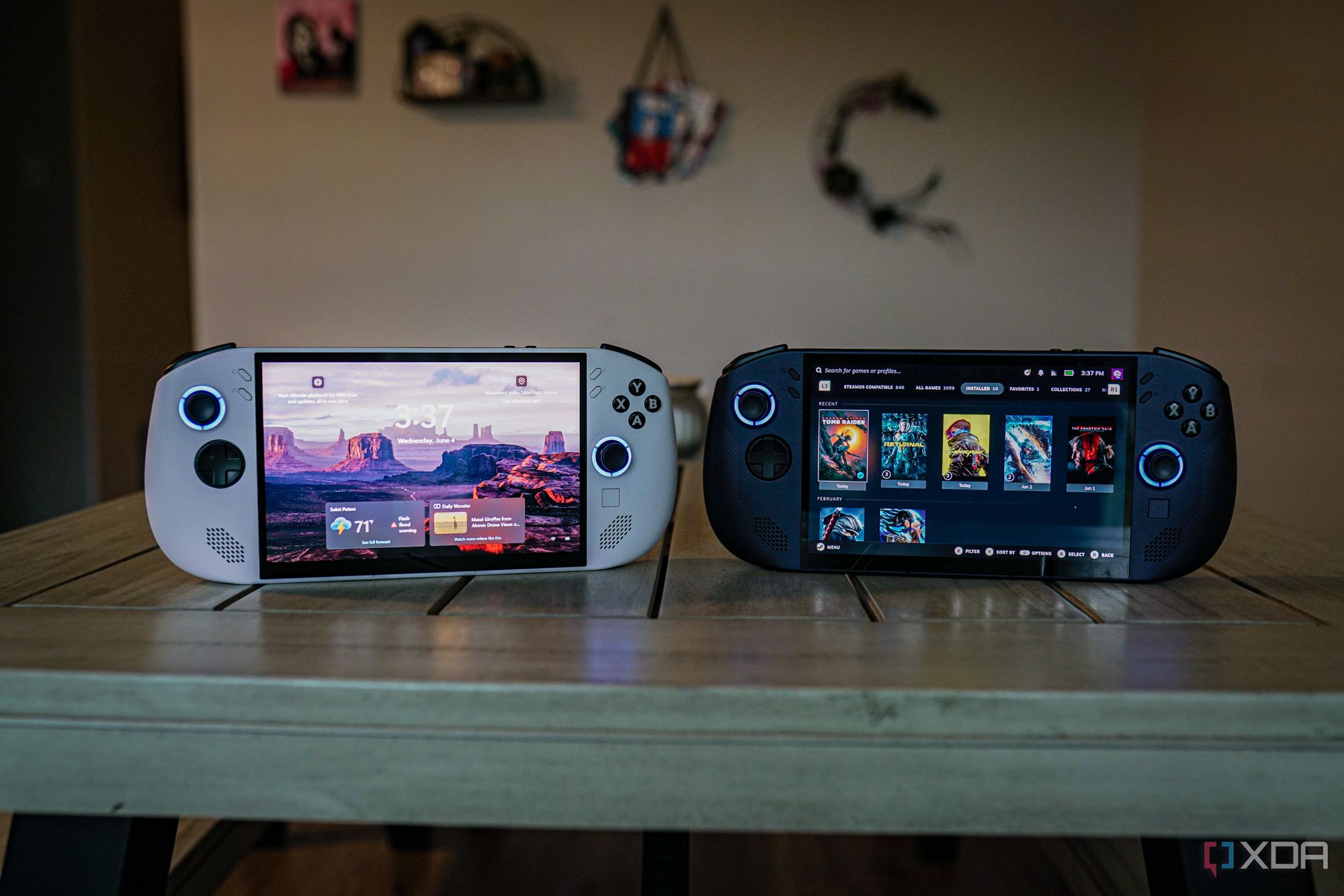
Related
SteamOS destroys Windows by up to 75%, and I have the receipts to prove it
SteamOS isn't only easier to use than Windows 11 — it's straight-up faster.
Just over a year ago, our advice on whether you should pick up a gaming handheld or wait depended on the device you wanted. The Steam Deck has no direct successor in the near future, but SteamOS coming to more handheld devices means it's not as easy a recommendation as simply saying, 'yes, buy one if you want to game on Linux.' Retro handhelds are either expensive due to tariffs or not sent to the US for sale. However, our advice for Windows-based handhelds still rings true a year later: wait if you can.
![[4K] Xbox Games Showcase 2025 _ The Outer Worlds 2 & Grounded 2 Direct 38-1 screenshot](https://static1.xdaimages.com/wordpress/wp-content/uploads/2025/06/4k-xbox-games-showcase-2025-_-the-outer-worlds-2-grounded-2-direct-38-1-screenshot.png)











